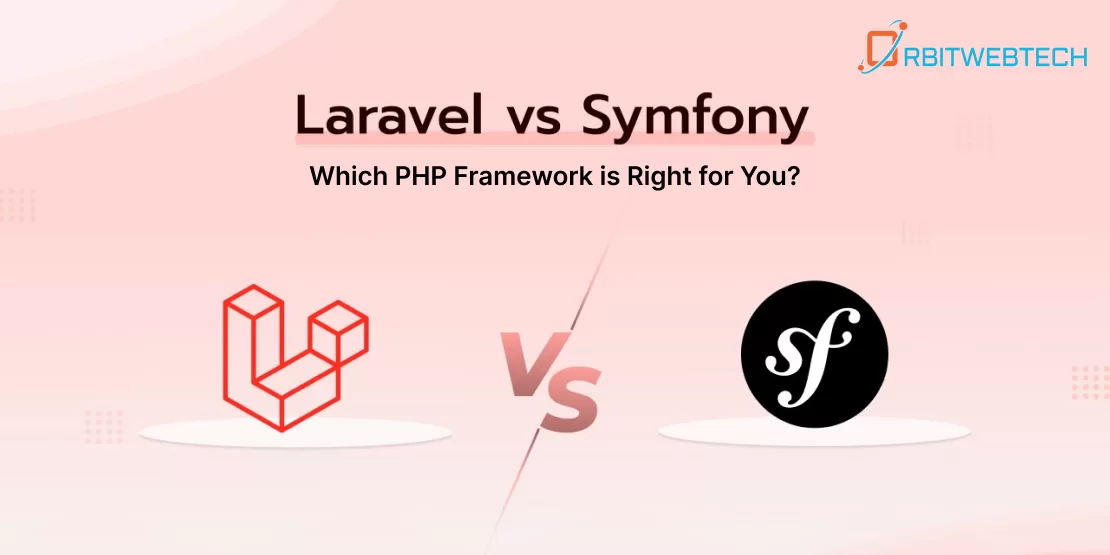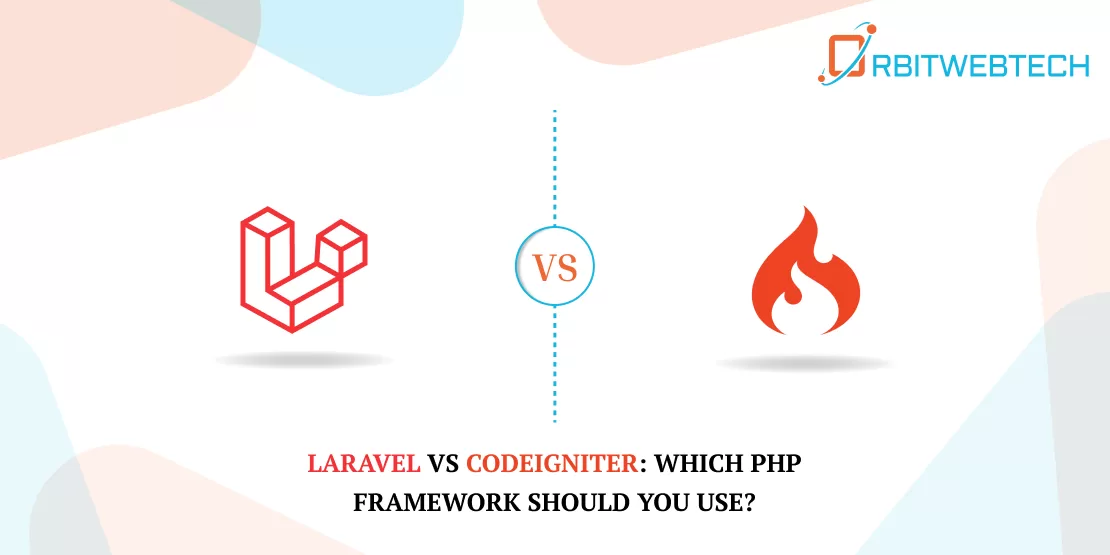
When choosing a PHP framework for your next project, the decision can often feel overwhelming. With so many options available, two of the most widely discussed frameworks are Laravel and Symfony. Whether you’re a beginner or an experienced developer, selecting the right framework can significantly impact the speed of development, the quality of the application, and long-term maintainability. In this article, we will dive deep into Laravel vs Symfony to help you determine which PHP framework is best suited for your needs.
Introduction
PHP development tools have evolved significantly over the years, and frameworks like Laravel and Symfony have become cornerstone tools for developers aiming to build modern web applications. Both frameworks are highly regarded in the development community, but they cater to slightly different use cases. While Laravel is known for its simplicity and developer-friendly features, Symfony is praised for its flexibility and robustness in large-scale, enterprise-level applications.
In this guide, we’ll examine the Laravel vs Symfony debate in detail, looking at their core features, strengths, weaknesses, performance, scalability, and when each framework is best used. This will provide you with a clearer understanding of which framework aligns with your project requirements
Introduction to Laravel
What is Laravel?
Laravel is an open-source PHP framework that focuses on simplicity, elegance, and ease of use. Created by Taylor Otwell in 2011, Laravel quickly gained popularity due to its intuitive syntax and powerful built-in tools. It is designed to make common web development tasks such as routing, authentication, and session management easier and faster.
Key Features of Laravel
- Eloquent ORM: Laravel’s built-in Object-Relational Mapping (ORM) system, Eloquent, simplifies working with databases. It allows you to interact with your database objects using an easy-to-understand, fluent syntax.
- Blade Templating Engine: Blade is Laravel’s templating engine that allows developers to work with HTML and PHP in a clean and simple way.
- Artisan CLI: Artisan is a command-line interface included with Laravel, which helps developers automate repetitive tasks and improve efficiency.
- Routing System: Laravel’s routing system is intuitive and simple, making it easy to define routes, controllers, and views.
- Security: Laravel provides out-of-the-box tools for security features like encryption, authentication, and hashing, helping developers build secure applications without having to worry about complex configurations.
Laravel is often recommended for smaller to medium-sized applications due to its quick setup and high developer productivity. The framework comes with a rich ecosystem that provides a set of tools and services, making it a complete solution for rapid application development.
Introduction to Symfony
What is Symfony?
Symfony is another powerful PHP framework that is well-suited for large-scale, complex applications. Developed by Fabien Potencier in 2005, Symfony is a full-stack framework, meaning it provides everything needed to build a modern web application. Unlike Laravel, Symfony allows more flexibility by giving developers the freedom to choose which components they want to use, making it a more modular and customizable solution.
Key Features of Symfony
- Component-based Architecture: Symfony is built around reusable components, which means developers can choose the components that best fit their project needs. Whether it’s for routing, forms, or security, Symfony offers a modular approach.
- Flexibility: Symfony allows developers to configure their application in a way that suits their specific requirements, making it ideal for large-scale, enterprise-level applications.
- Performance: Symfony is known for its high performance and scalability, making it the go-to choice for projects that require fine-tuned optimization.
- Bundles: Symfony uses a bundle system, where bundles are reusable modules that contain different components (e.g., authentication, logging, etc.). This makes it easy to add or remove features based on your application’s needs.
- Maturity: Symfony has been around for longer than Laravel, and its maturity in the PHP development community means it has extensive documentation, a robust community, and is backed by a solid enterprise ecosystem.
Symfony excels in projects that require stability, maintainability, and scalability. If you’re working on a complex application that may require long-term scalability and high-performance optimization, Symfony is a great option.
Laravel vs Symfony: Ease of Use and Learning Curve
Laravel’s Learning Curve
One of Laravel’s strongest selling points is its user-friendliness. Laravel is often seen as an ideal choice for developers who are new to PHP or who need to quickly prototype applications. The framework offers clear documentation, and its developer tools (like Artisan CLI and Eloquent ORM) allow you to build complex features with minimal effort. Additionally, Laravel’s syntax is designed to be expressive and easy to understand, reducing the learning curve compared to other PHP frameworks.
Symfony’s Learning Curve
On the other hand, Symfony’s flexibility comes at a price. The learning curve for Symfony is steeper, especially for developers who are new to PHP frameworks. The framework’s component-based system and greater configurability require a deeper understanding of PHP and web development practices. However, this also makes it more suitable for advanced developers working on enterprise applications or large-scale systems where you need full control over every aspect of your application.
Performance and Scalability
Laravel’s Performance
While Laravel is fast and efficient for most use cases, its performance can be affected when scaling for large applications with high traffic. It is optimized for development speed, allowing developers to get their applications up and running quickly. However, for projects that need to handle a large volume of users or require intricate performance tuning, Symfony might have the edge.
Symfony’s Scalability
Symfony shines when it comes to scalability. It is specifically built to support large-scale, complex applications. The ability to customize each component, choose libraries, and optimize various parts of the application makes Symfony a go-to choice for enterprise applications that need high performance and scalability. Symfony’s advanced caching mechanisms and optimized routing make it suitable for applications that experience high traffic volumes and require fine-grained control over performance.
Community and Ecosystem
Both Laravel and Symfony have thriving communities and extensive documentation. However, there are some differences between the two frameworks when it comes to community support:
- Laravel Community: The Laravel community is large, active, and highly supportive. With a wealth of tutorials, online forums, and development tools like Laravel Forge and Envoyer, Laravel’s ecosystem supports rapid application development and encourages community collaboration.
- Symfony Community: Symfony’s community, although smaller, is more focused on enterprise-grade applications. The Symfony community provides solid resources for developers working on large projects, but the overall pace of innovation may seem slower compared to Laravel’s fast-paced development cycle.
Cost of Development
Laravel’s Cost Efficiency
Laravel’s simplicity and speed of development make it a more cost-effective option, especially for smaller projects. Because Laravel is designed to be quick and intuitive, developers can complete projects faster, leading to lower development costs for your business.
Symfony’s Higher Development Cost
Symfony’s advanced features and customization options can lead to higher initial development costs, as it requires more time and expertise to set up and configure. However, for larger applications that require complex functionalities, Symfony may prove more cost-effective in the long run.
Conclusion
Both Laravel and Symfony are excellent PHP frameworks, but the decision between the two depends largely on the specific needs of your project. If you’re working on a small-to-medium-sized application and need to get it up and running quickly, Laravel is likely the better choice. It’s fast, easy to use, and provides an excellent ecosystem for rapid development.
On the other hand, if you’re building a large-scale enterprise application that demands high performance, scalability, and flexibility, Symfony would be more suitable. Its modularity, reusable components, and configurability make it ideal for complex projects where long-term scalability and maintainability are key.
In the end, both frameworks have their strengths and serve different types of projects. Whether you choose Laravel software or Symfony, understanding the nuances of each will help you make an informed decision that aligns with your development goals.If you’re still unsure about which PHP framework to choose or need help building your web application, consider partnering with Orbitwebtech, a best web development company in the USA. Our team of expert developers can help guide you through the decision-making process and ensure that your project is built using the most effective PHP framework for your needs.


